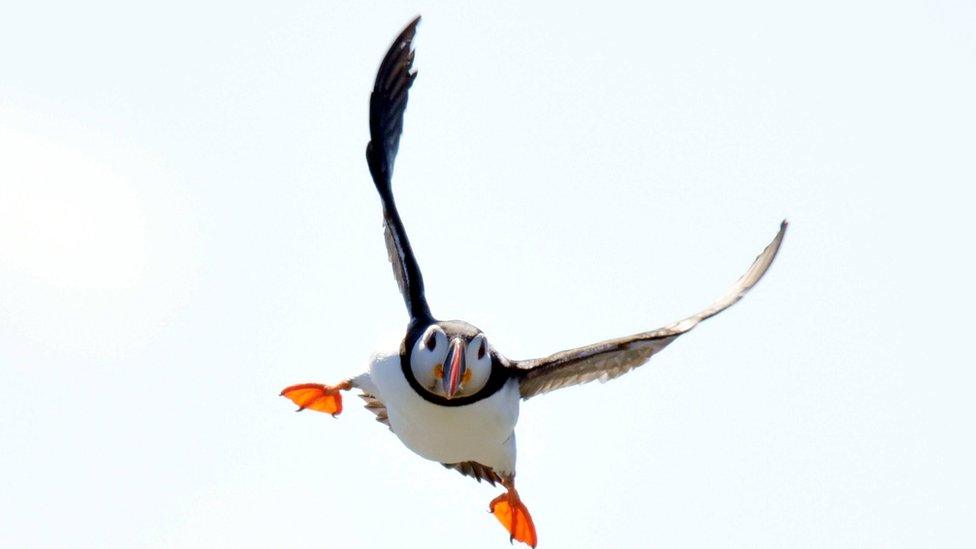The big puffin count is back for the first time since Covid
- Published
- comments

Puffins arrive at the Farne Islands, off the coast in the north east of England, every year for their breeding season.
Usually they are counted by rangers every year but Covid meant that couldn't happen.
Now coronavirus restriction have been lifted the big puffin count is back on.
Rangers will go across the eight islands and monitor how many puffins have set up nests and pairings.
The rangers check lots of burrows where the puffins lay their eggs to see if the birds have returned to nest there this year.
Then the number of birds will be compared to previous years.
The puffins arrive on the islands late March to early April and stay until the baby puffins called pufflings can fly in the August.
Puffin numbers have been in decline with numbers falling by 15% in recent years.
It is thought that the puffin's main supply of food, sand eels, has been reduced because of the impact of climate change.
Harriet Reid, area ranger at the National Trust, said: "Puffins live on the edge in every sense, mostly living on remote, ground predator-free islands and are very picky when it comes to food, preferring sand eels.
"In order to track how puffins are doing, our counts are particularly important so that we can analyse population trends to see if they are increasing, decreasing or stable."
Puffins mate for life! They choose one partner and stick with them forever.
Puffins are excellent diggers and make homes known as burrows underground!
Puffin counting on the Isle of May
Storms washing away soil and a lack of plants in their breeding grounds is also having an impact on the population.
Harriet Reid said: "Puffins won't build or prepare burrows where there is bare earth as it leaves them too exposed to predators such as large gulls, instead preferring to build burrows in vegetated areas. We are therefore going to spread seeds such as maritime grasses and sea campion in an effort to fill these gaps."
The count will help conservationists better understand what is happening on the islands and enable them to protect and support the puffins and try and boost their numbers.
- Published22 July 2019
- Published25 May 2022
- Published25 May 2022
